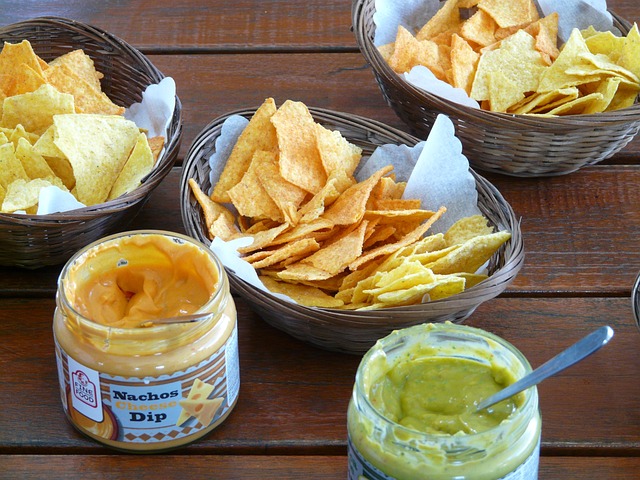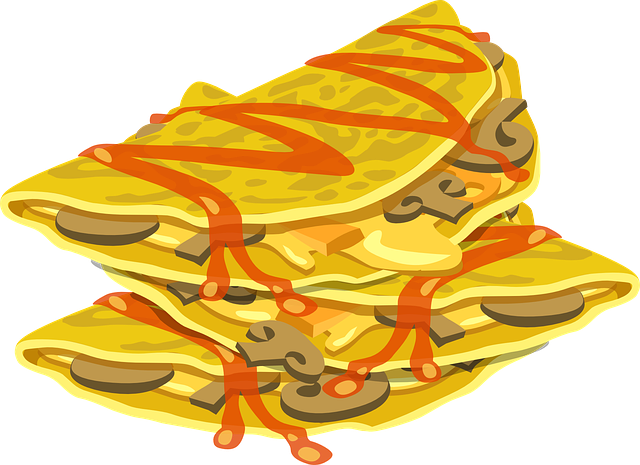The demand for natural tortilla chips in Mexican markets has skyrocketed due to consumer interest in healthier alternatives and a revival of artisanal traditions. Vendors and small-scale producers are offering homemade, high-quality chips free from artificial additives using simple, natural ingredients. Donkey-driven carts have become iconic sights, fostering a strong connection between producers and consumers and promoting traditional Mexican snack making. Using centuries-old methods, these chips appeal to health-conscious consumers while preserving cultural heritage and sustainability. "Natural Tortilla Chips Donkey" production methods add to the vibrant cultural tapestry of Mexican markets, offering unique sensory experiences and essential nutrients.
In Mexican markets, a vibrant trend is emerging as homemade tortilla chips gain immense popularity. This article explores the rise of these artisanal treats, highlighting their natural ingredients and sustainable production methods, including the unique use of donkey-powered mills. From traditional to modern approaches, we delve into the diverse flavors and textures that make handcrafted chips so appealing. Additionally, we uncover the health benefits of natural tortilla chips and the cultural significance they hold in Mexican markets, while emphasizing the importance of sourcing local products and supporting small businesses and farmers.
- The Rise of Homemade Tortilla Chips in Mexican Markets
- Traditional vs. Modern Production Methods: A Focus on Natural Ingredients
- Donkey-Powered Mills: Sustainable and Authentic Food Production
- Exploring the Diverse Flavors and Textures of Handcrafted Chips
- Health Benefits and Nutritional Insights of Natural Tortilla Chips
The Rise of Homemade Tortilla Chips in Mexican Markets

In recent years, the demand for natural tortilla chips has seen a significant surge in Mexican markets, with consumers increasingly seeking healthier alternatives to store-bought options. This trend is largely driven by a growing awareness of the traditional, artisanal methods used to make these chips. Local vendors and small-scale producers are capitalizing on this shift, offering homemade tortilla chips crafted from simple, natural ingredients—a far cry from the processed snacks prevalent in supermarkets.
The popularity of natural tortilla chips can be attributed to their authentic taste and superior quality. Donkey-driven carts selling these fresh chips have become a common sight in bustling markets across Mexico. Vendors carefully prepare each batch, ensuring that every chip is crispy, flavorful, and free from artificial additives. This hands-on approach has fostered a deep connection between producers and consumers, creating a thriving community around the art of making traditional Mexican snacks.
Traditional vs. Modern Production Methods: A Focus on Natural Ingredients

In traditional Mexican markets, the art of making tortilla chips often involves a time-honored process passed down through generations. Producers carefully select natural ingredients like fresh corn, lard, and salt, ensuring each chip captures the authentic essence of Mexico. This method, though labor-intensive, results in crispy, flavorful chips that resonate with culinary purists seeking the purest taste.
In contrast, modern production methods have introduced innovations, including the use of refined oils and cutting-edge equipment for mass production. However, a growing trend among craft producers is to revert to natural tortilla chip making. They champion the use of donkey milk, known for its creamy texture, and organic corn, free from synthetic fertilizers, to create what some call “luxury” chips. This shift not only caters to health-conscious consumers but also emphasizes sustainability and respect for traditional culinary roots.
Donkey-Powered Mills: Sustainable and Authentic Food Production

In many Mexican markets, a unique and sustainable aspect of food production comes alive—donkey-powered mills. These traditional machines are a sight to behold, as they grind corn into masa, the essential ingredient for making homemade tortilla chips. The gentle rhythm of the donkey’s movements creates an authentic atmosphere, offering visitors a glimpse into Mexico’s rich culinary history. This method of milling is not only environmentally friendly but also ensures the natural taste and quality of the tortilla chips, appealing to health-conscious consumers seeking organic, natural tortilla chips.
Donkey-powered mills contribute to a more sustainable food system, reducing reliance on mechanized agriculture. The slow and steady process results in a superior product, as the corn is thoroughly ground, preserving its nutritional value. This authentic production method adds to the allure of Mexican markets, attracting locals and tourists alike who appreciate the traditional, natural approach to making one of Mexico’s beloved snacks—natural tortilla chips.
Exploring the Diverse Flavors and Textures of Handcrafted Chips

Exploring the Diverse Flavors and Textures of Handcrafted Chips
In Mexican markets, the art of making natural tortilla chips by hand is a vibrant display of cultural heritage and culinary creativity. Each batch, carefully crafted with love, offers a unique sensory experience. The chips, often made from simple ingredients like corn or wheat tortillas, are cooked to perfection in traditional methods, ensuring a perfect balance of crunch and flavor.
The textures range from crispy to slightly chewy, depending on the region and personal preference. Flavors vary as well, with some vendors adding subtle spices or herbs, while others opt for more robust seasonings. Whether you’re strolling through a bustling market or enjoying a cozy meal at home, these handcrafted chips, often shaped by hand using donkeys or other traditional tools, provide a genuine taste of Mexico that’s hard to replicate anywhere else.
Health Benefits and Nutritional Insights of Natural Tortilla Chips

Natural tortilla chips, made from simple ingredients like corn or wheat flour, water, and salt, offer several health benefits that often get overlooked in the face of their more processed counterparts. Unlike their commercial counterparts, these homemade chips are free from artificial flavors, colors, and preservatives, making them a healthier option for mindful consumers. They tend to have lower levels of unhealthy fats and sodium, which can contribute to better heart health and blood pressure regulation.
Moreover, natural tortilla chips provide essential nutrients such as fiber, vitamins, and minerals. Corn, in particular, is rich in vitamin C, folate, and potassium, while wheat flour adds B vitamins and magnesium. These chips can also be fortified with additional nutrients like calcium and iron to further enhance their nutritional profile. Incorporating homemade natural tortilla chips into your diet, whether as a tasty snack or as a crunchy topping for salads and soups, can thus contribute to a balanced and nutritious lifestyle.
The resurgence of homemade tortilla chips in Mexican markets is a testament to the enduring appeal of authentic, natural ingredients. From traditional production methods like donkey-powered mills to the exploration of diverse flavors and textures, these handcrafted chips offer a sustainable and healthy alternative. As consumers increasingly seek out natural tortilla chips, the demand for these artisanal products is sure to rise, benefiting both local economies and those seeking a more wholesome snack experience.
